Corporate solutions to protect ecological environment
2019-07-02GoldenBeeGoldenBee0
If you were a fashion handbag designer, what material do you prefer?
Primary material: (A) crocodile skin; or (B) sheep leather?
Auxiliary material: (A) cowhide; or (B) linen?
Hardware: (A) brass; or (B) bamboo?
Manufacturing site: (A) a place in harsh natural environment; or (B) a place in natural environment with strong carrying capacity?
If your choices are all of A, then your social costs will be 352 yuan, much higher than that of choice B, only 56 yuan. This is an important reference offered by the WeChat app Kering Innovative Luxuries Lab in a few seconds.
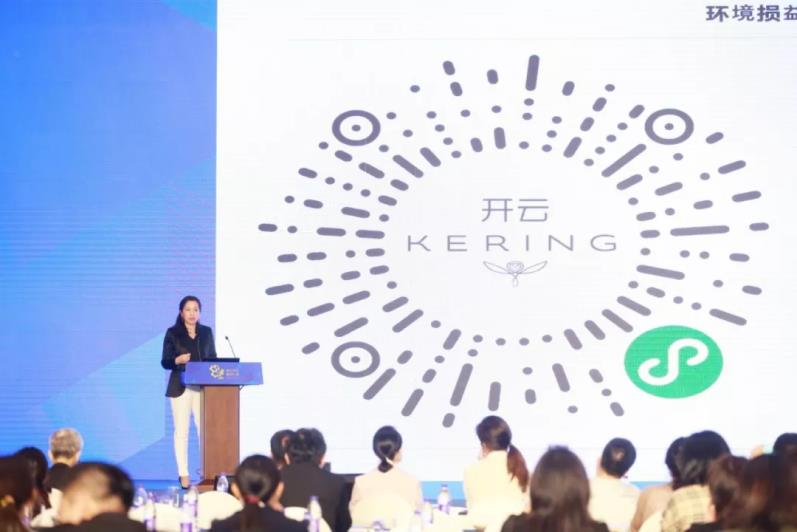
On June 13, 2019, at the Panel “Business and Nature – Finding New Solutions for Environmental Sustainability” during the 14th International CSR Forum, Cai Jinqing, President of Kering Greater China, introduced this environmental profit and loss app tailored to the Chinese market. The environmental profit and loss statement can fundamentally improve designers’ awareness of environmental protection and sustainable design. This Panel, jointly organized by the Natural Capital Coalition, Kering Greater China (shorted as Kering) and China Sustainability Tribune, explored the prospective thinking and innovative practices of enterprises in reducing natural capital and protecting the ecological environment.
Natural capital accounting
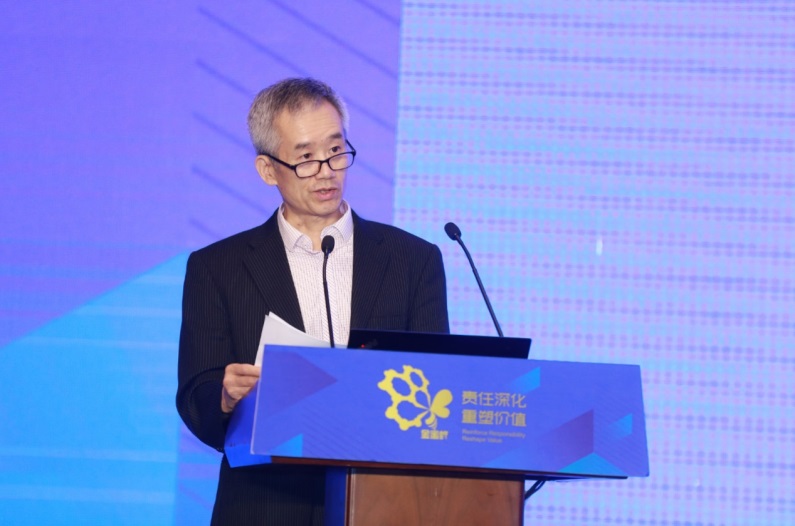
Zhong Xiaodong, Project Officer, Foreign Economic Cooperation Office, Ministry of Ecology and Environment (FECO)
In his welcoming address, Mr. Zhong pointed out that since the Industrial Revolution, enterprises, while providing abundant products and services to human beings by virtue of the advanced production technologies, have caused increasingly serious pollutions to the environment, causing direct and indirect harms to human health. In this regard, FECO released the Declaration on Partnership for Business and Biodiversity at the World Biodiversity Day on May 22. He also said that, however, enterprises may sometimes lack motivation in incorporating environmental protection into their business activities and integrating biodiversity conservation policies into their business strategies, due to the fact that the value of natural capital, including biodiversity and ecosystem services, cannot be reflected in the accounting and financial performance of enterprises.
How to understand natural capital accounting?
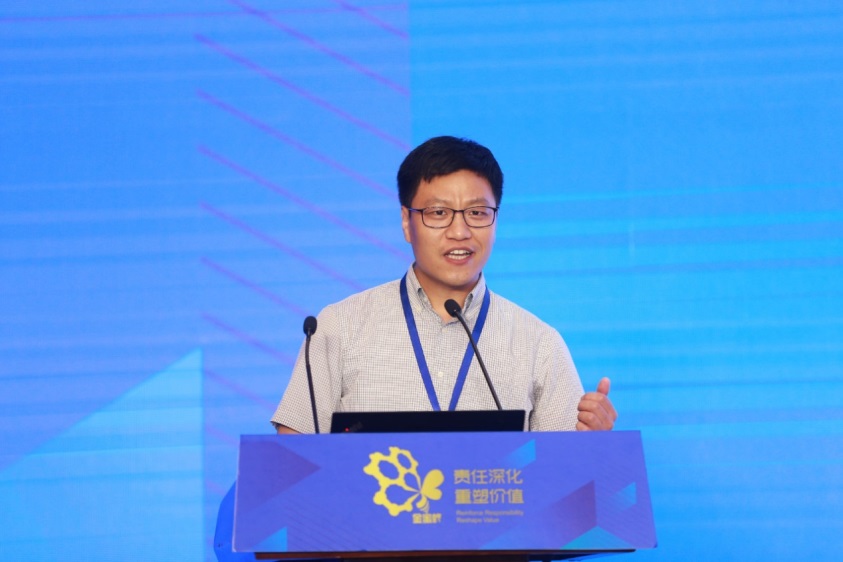
Yao Lin, Associate Researcher of Chinese Academy of Natural Resource Economics, Ministry of Natural Resources (MNR)
“Deforestation may generate economic value, but can bring about the loss of ecological and cultural value as well as cultural landscape value, and even the loss of the interests of the local community.” Mr. Yao introduced this case in his keynote speech to explain the logic of value flow in the process of environmental protection, development, and restoration.
He stressed that, different from the previous corporate accounting and national balance sheet that emphasize on economic benefits, System of Integrated Environmental and Economic Accounting (SEEA) puts more emphasis on ecological benefits and social welfare in addition to the economic benefits.
Meanwhile, some enterprises have already conducted innovative practices.
Kering ranked second in the 2019 Global 100 Most Sustainable Corporations released by Corporate Knights at the World Economic Forum in Davos. Kering is also the world’s first enterprise that have developed an environmental profit and loss tool and applied it to business processes.

Cai Jinqing, President of Kering Greater China
In her speech, Cai Jinqing stated that Kering has announced to the public the quantitative values of the annual environmental profit and loss for four consecutive years. In the future, Kering will attach more importance to and solve the environmental impact of all its partners in the supply chain, aiming to reduce the environmental loss and greenhouse gas emissions by 40% and 50% respectively in 2025, realize 100% traceability of raw materials (such as cotton, leather, valuable fur, and wool), and integrate social, environmental and animal welfare standards into the entire supply chain.
“Business for Nature”
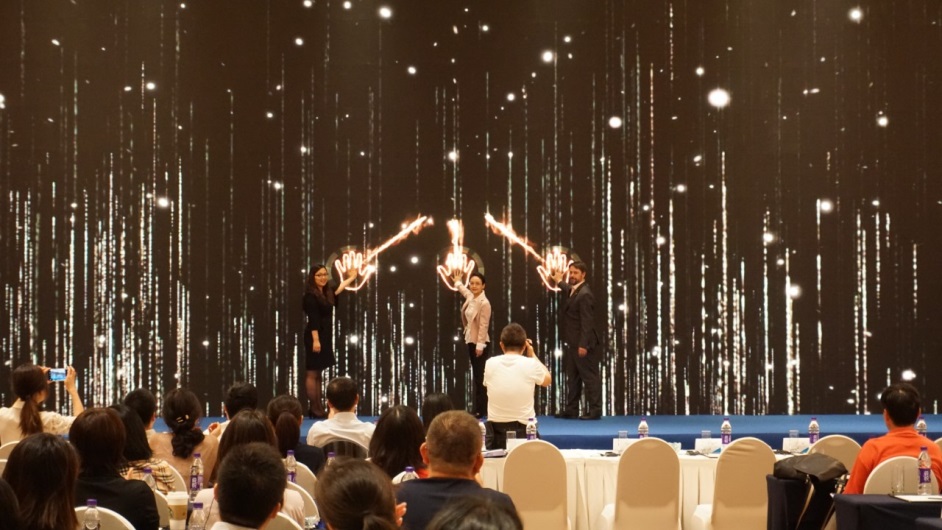
The Launch Ceremony of “Business for Nature”
How to promote more Chinese enterprises to participate in the conservation of ecosystem and biodiversity? At this Panel, Mark Gough, Executive Director of Natural Capital Coalition, Wenhui, China Project Advisor of World Business Council for Sustainable Development (WBCSD), and Chen Weizheng, President of GoldenBee (Beijing) Management Consulting Co., Ltd., jointly announced the launch of “Business for Nature” in China. This event is the global pre-launch of the “Business for Nature” initiative, with the purpose to introduce the “Business for Nature” initiative to Chinese enterprises, encourage them to voluntarily make commitments and join the Business for Nature Coalition, and advocate them to engage in the global joint action.

Member enterprises of Business for Nature Coalition (as of June 2019)
More new solutions
In response to the lack of innovative solutions encountered by enterprises in their practice of ecological protection and biodiversity conservation, a panel discussion hosted by Meng Han, China Representative of UN Environment World Conservation Monitoring Centre (UNEP-WCMC), was organized.
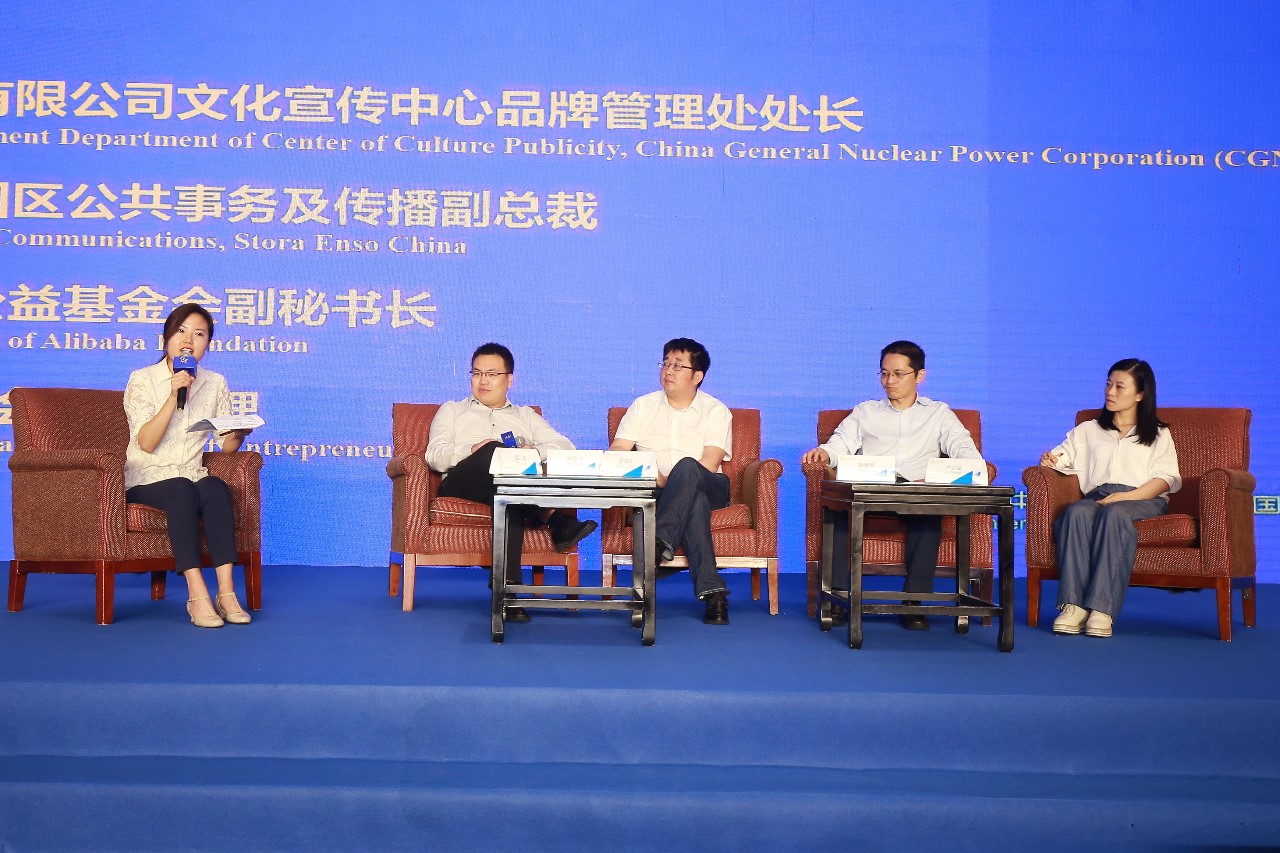
According to Han Yunfei, Director of Brand Management Department of Center of Culture Publicity, China General Nuclear Power Corporation (CGN), CGN advocates natural nuclear power, hoping to keep a symbiotic, mutual-benefit and regenerative relation with the natural environment. At the Daya Bay Nuclear Power Plant in Shenzhen, the media and environmental organizations have seen fireflies and marine animals in the surrounding waters.
Zheng Gaobo, Deputy Secretary General of Alibaba Foundation, introduced that since its establishment, Alibaba Foundation has funded more than 200 environmental NGOs and launched more than 400 projects with water conservation and nature education as the focus, including the Wild Animal Friends App that has been well received by young people recently.
According to Decker Yao, Head of Public Affairs and Communications of Stora Enso China, Stora Enso has developed some renewable wood products based on the selection of wood and biologic materials. For instance, the strength of wood can be as hard as steel, and can also be as flexible as plastics. With the development of technologies, wood can also have perspectivity like glass or plastic.
Lu Zhiyao, Project Manager of SEE Foundation, introduced that SEE Foundation, with more than 900 enterprise members, is devoted to planting trees in the Alxa region of Inner Mongolia, protecting endangered species in the mountainous region of Southwest China, and protecting mangroves in Guangxi Province.
Best Practices
- The 100-year brand — Air Liquide also has a sense of juvenile
- Beijing Public Transportation Corporation: Developing green transportation to build a harmonious and livable capital
- CGN: Building a modern factory in barren deserts and developing a new win-win cooperation model along “Belt and Road”
Upcoming Event

All the materials on the site “Source: XXX (not from this site)” have been reprinted from other media. They do not imply the agreement by the site.
All the materials with “Source: CSR-China Website” are the copyright of CSR-China Website. None of them may be used in any form or by any means without permission from CSR-China Website.
GoldenBee Official WeChat
Copyright © Csr-china.net All Right Reserved.
京ICP备19010813号










